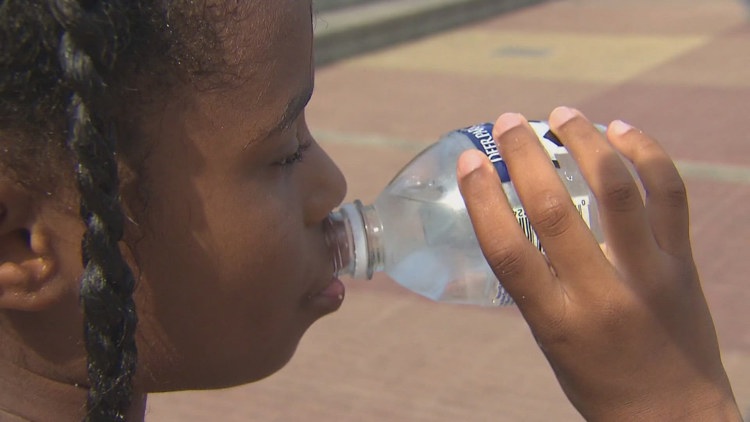The Dangers of Heat for Young Athletes in Phoenix

As summer transitions into fall, the scorching heat of Phoenix, Arizona shows no signs of cooling down. September brings average maximum temperatures of 100.4 degrees, making it a challenging environment for young athletes who need to stay properly hydrated to avoid heat-related dangers.
Dr. Minnie Stout from the Arizona College of Nursing emphasizes the importance of taking breaks and staying hydrated when exercising in high temperatures. She recommends a 10 to 15-minute break for every 40 minutes of activity and suggests hydrating two to three hours before a game, 30 minutes before, and regularly during physical exertion.
Stout also advises that kids drink 10 gulps of water every 15 to 20 minutes during exercise and encourages parents to set an example by making hydration a consistent part of family routines, especially during the hot summer months. Adding fruits or cucumbers to water can make hydration more enjoyable for children without the need for sugary drinks.
In addition to frequent hydration, other precautions like wearing loose, light clothing, hats, sunscreen, and taking breaks in the shade are essential for preventing heat-related illnesses. It’s crucial to stay informed about weather conditions and health updates as extreme heat can lead to serious health complications, including heat exhaustion and heat stroke.
Heat Exhaustion:
Signs of heat exhaustion include heavy sweating, weakness, nausea, and normal body temperature. First aid for heat exhaustion involves moving the individual to a cool place, loosening clothing, applying cool cloths, and offering small sips of water while monitoring for worsening symptoms.
Heat Stroke:
Heat stroke is a life-threatening emergency characterized by extremely high body temperature, hot and dry skin, confusion, and unconsciousness. Immediate medical attention is crucial, and cooling measures should be taken until help arrives.
For more information on heat illness prevention and emergency protocols, visit www.azhealth.gov/heat or email extremeweather@azdhs.gov for a comprehensive prevention curriculum.
Stay informed and stay safe!
Stay Updated with 12News
For the latest local news and updates, subscribe to the 12News YouTube channel and download the 12News app for breaking news alerts.




